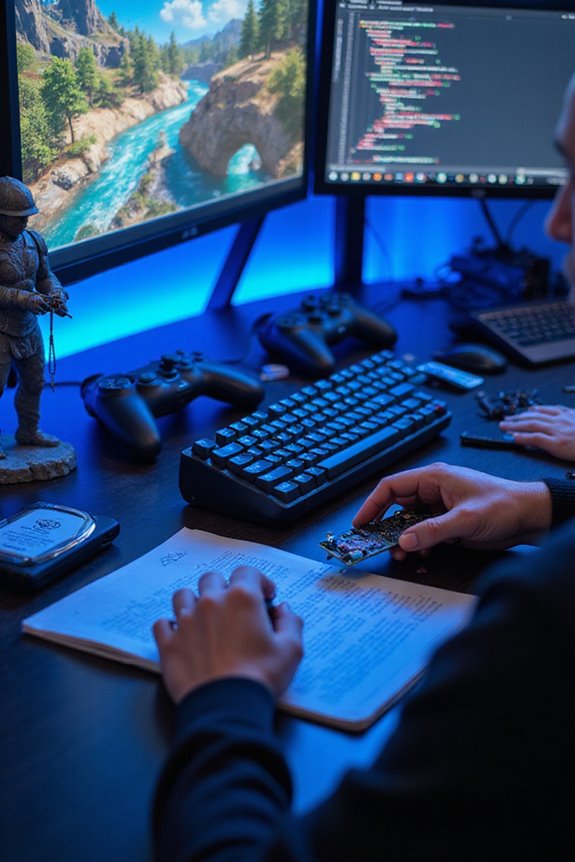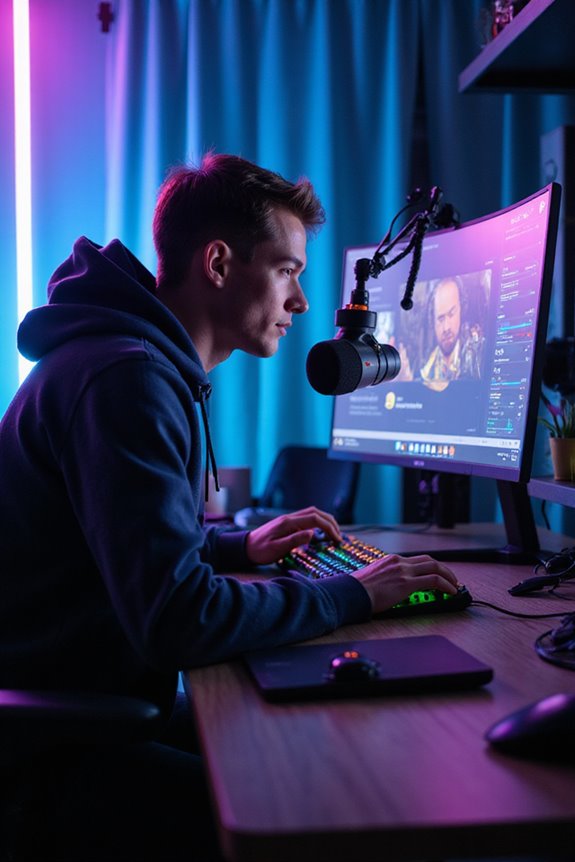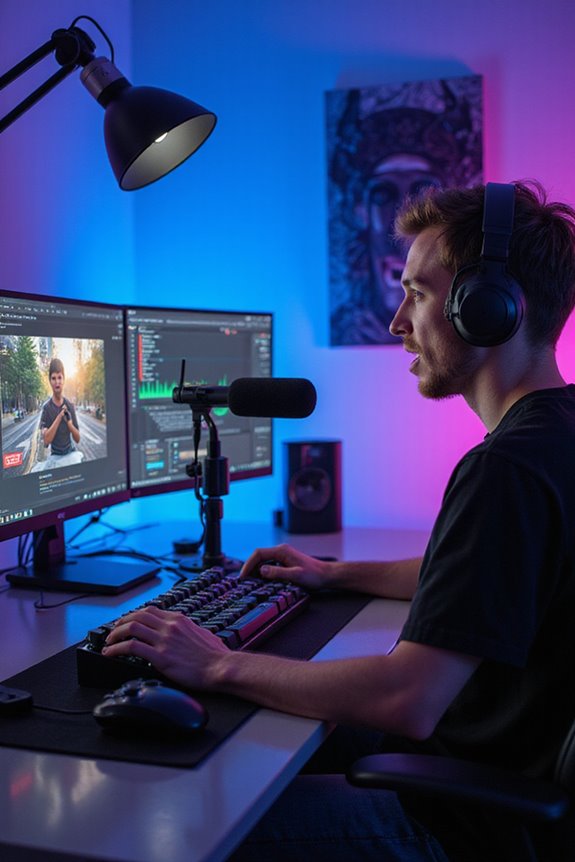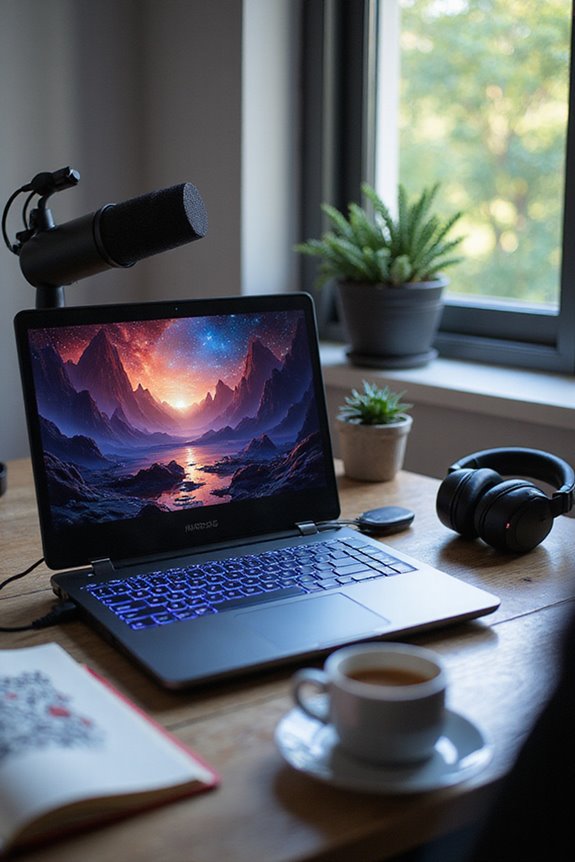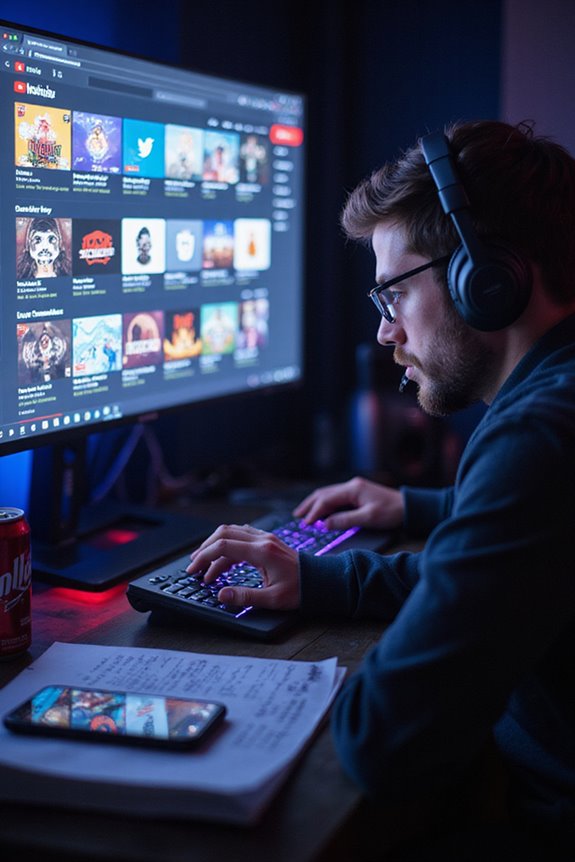Mods are a fascinating part of gaming, allowing players to enhance their experiences and personalize gameplay. They can range from simple audiovisual tweaks to total conversion mods that completely reshape a game. Mods not only keep gameplay fresh, but they also build vibrant communities and even help developers by extending the product lifecycle. However, it’s important to navigate challenges like security risks and lack of official support. Stick around, and you’ll uncover more interesting insights into the modding world.
Key Takeaways
- Modding enhances gameplay by allowing players to customize and alter game content, extending replay value and creative expression.
- Various types of mods, such as gameplay mechanics and total conversions, cater to different player interests and needs.
- Active modding communities contribute to longer product lifecycles, increasing player retention and providing developers with valuable feedback.
- Emerging technologies, like AI tools and cloud gaming, simplify the modding process and expand creative possibilities for users.
- Challenges include risks of account bans and security threats from unofficial sources, highlighting the need for developer support and ethical considerations.
Understanding Modding: Definition and Purpose
When you think about modding, it’s easy to see why it’s such an enchanting aspect of gaming culture. At its core, modding is all about altering a game’s content, allowing players like us to breathe new life into our favorite titles. Whether it’s a simple tweak or a complete overhaul, mods extend replay value and let us express our creativity. Platforms like Steam Workshop and Nexus Mods make sharing these creations simple, fostering a vibrant community where collaboration thrives. However, diving into modding isn’t without challenges. Technical skills can be essential, especially for advanced projects, and steering through copyright issues adds another layer of complexity. Still, the joy of seeing your ideas come to life makes it all worthwhile.
Exploring Different Types of Mods
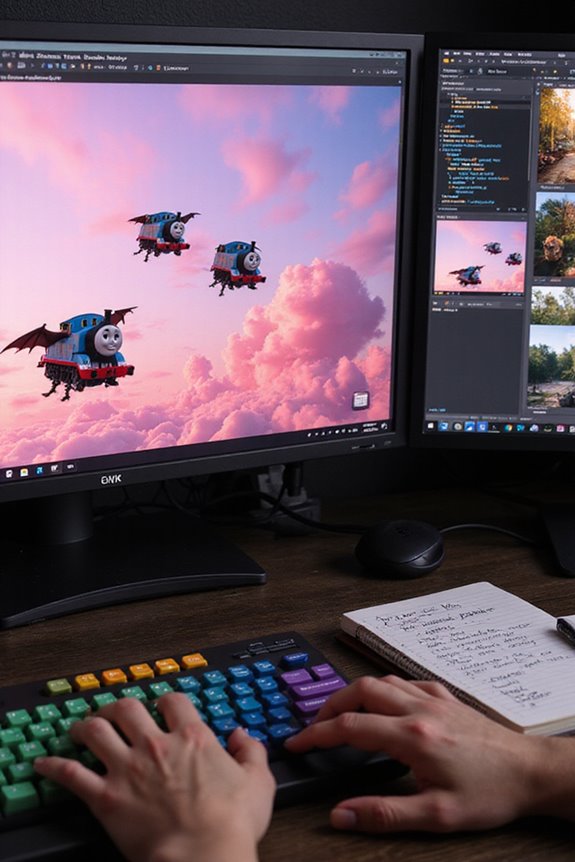
Modding isn’t just about tweaking a game here and there; it encompasses a wide variety of modifications that cater to different player needs and preferences. For instance, gameplay mechanics mods can adjust balance and user interfaces, while audiovisual changes focus on enhancing graphics and sound. There are total conversion mods that reshape a game entirely, and add-ons that introduce new content without changing core mechanics. Overhaul mods can greatly improve gameplay elements, offering fixes and performance boosts. Whether it’s adding new characters or adjusting weather effects, each mod type has its unique charm. While some mods provide great enhancements, they can sometimes clash with others, so maneuvering through these options is essential for a smooth gaming experience.
The Benefits of Modding for Players and Developers
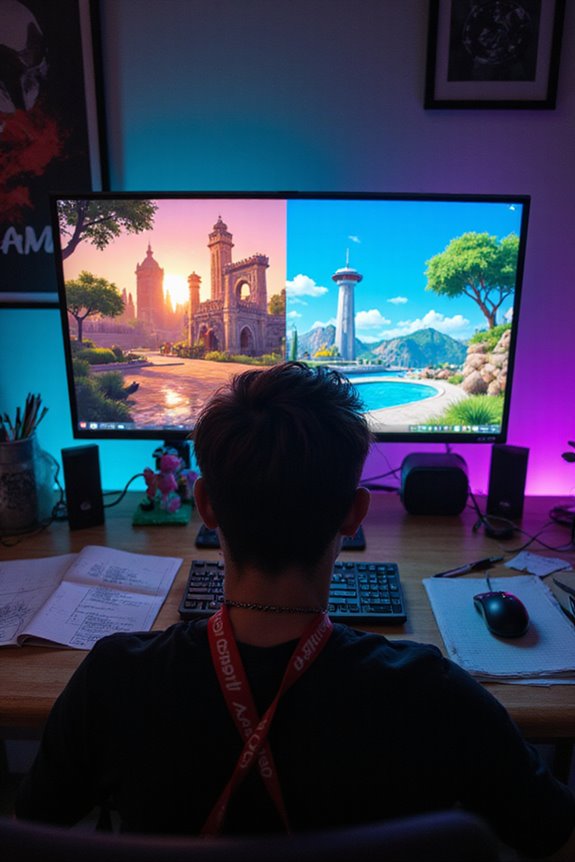
While immersing yourself in the world of gaming mods, you might find yourself surprised by the multitude of benefits they offer, not just for players but also for developers. For players, mods breathe new life into games, extending gameplay and providing customization options. I’m constantly amazed by how mods can introduce innovative content, keeping our gaming experiences fresh and engaging.
From a developer’s perspective, an active modding community can prolong product lifecycles considerably, resulting in increased player retention and revenue. Plus, the free user-generated content offers valuable feedback and insights. It’s a win-win situation; we enjoy tailored experiences, while developers benefit from greater engagement and potential new revenue streams. So, why not immerse yourself in the modding community?
Platforms and Technology Driving Modding
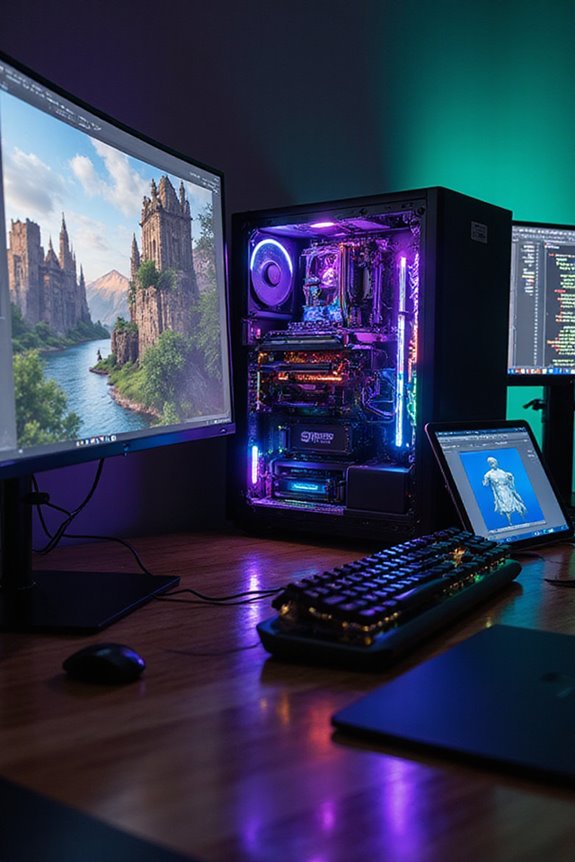
As we explore the fascinating world of gaming mods, it’s clear that the platforms and technologies driving modding are shaping how we create and share content. Cloud gaming services like Xbox Cloud Gaming and Nvidia GeForce are lowering hardware barriers, making mods more accessible. NVIDIA RTX Remix allows modders to produce stunning ray-traced visuals, adding depth to classic games. Meanwhile, AI tools from Saga Origins streamline the modding process, helping us create and distribute content faster. Plus, emerging technologies like Web3 and blockchain might redefine ownership through NFTs. These advancements not only enhance our creative freedom but also support vibrant modding communities. It’s an exciting time, and I can’t wait to see what comes next!
Popular Games and Their Modding Communities
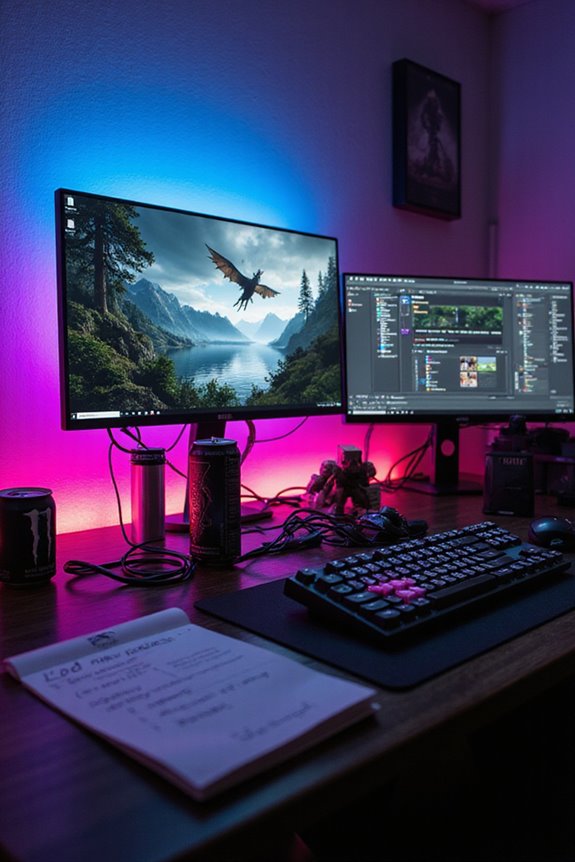
In the domain of gaming, some titles have become synonymous with modding, drawing in enthusiastic communities that breathe new life into the gameplay experience. Minecraft stands out, with a staggering 273,000 searches monthly, showcasing its endless possibilities. Grand Theft Auto V, despite Rockstar’s disapproval, garners around 240,900 searches, proving its modding allure. Then there’s Stardew Valley, where 143,700 searches reveal a community keen to enhance its charm. Fallout: New Vegas and Mount & Blade: Warband also thrive, offering diverse mods that enrich replayability. These communities foster collaboration, leading to innovative content. It’s fascinating how modding can transform a game, creating unique experiences that keep players engaged long after the credits roll.
Challenges and Security Concerns in Modding
Modding can be an exciting way to enhance your gaming experience, but it doesn’t come without its challenges and security concerns. For starters, using mods can risk account bans as developers employ machine learning and real-time monitoring to catch unauthorized changes. Plus, downloading from unofficial sources can lead to data theft or malware exposure, putting your system in jeopardy.
You also can’t access official support for modded accounts, leaving you vulnerable when things go wrong. And let’s not forget the ethical side—cheating tools like aimbots can ruin the game for everyone. So, while modding can be a blast, it’s essential to tread carefully and stay aware of these potential pitfalls. After all, your gaming joy should be secure!
The Role of Developer Support in Modding
While many gamers immerse themselves in modding for fun, developer support plays an essential role in shaping that experience. Developers often see modding as a smart business strategy, helping extend a game’s lifespan and creating a vibrant community. By providing Software Development Kits (SDKs), they not only engage users but also inspire innovation—who doesn’t love new gameplay mechanics?
Platforms like Nexus Mods and Steam Workshop thrive with developer backing, making it easy for modders to share their creations. It’s fascinating to see how effective support can lead to a game’s enduring popularity, as seen with titles like Baldur’s Gate 3. So, when developers embrace modding, it’s a win-win for everyone involved, fostering creativity and community.
Future Trends in Modding: VR, AR, and Beyond
As technology continues to evolve, the future of modding is set to become even more exciting, especially with the integration of VR and AR. Imagine creating immersive worlds where you can manipulate virtual objects in 3D space. The enhanced realism from high-resolution displays and haptic feedback will draw us deeper into our creations. Plus, AI integration will help automate tasks, giving us more time to explore our ideas.
User-generated content platforms will thrive, allowing us to share our mods effortlessly across different systems, cultivating vibrant communities. However, we’ll need to navigate technical challenges and legal landscapes as we venture into this new era. Still, the potential for interactive storytelling and dynamic experiences makes it all worthwhile.
Frequently Asked Questions
How Do I Install Mods on My Game?
To install mods, I usually download them from trusted sites, extract the files, then place them in the game directory. Always back up my game files first—it’s saved me from headaches more than once!
Can Mods Affect Game Performance Negatively?
Absolutely, mods can negatively impact game performance. I’ve noticed that some poorly optimized mods can slow things down or even cause crashes, but with the right choices, you can enhance your experience instead.
Are Mods Available for Mobile Games?
Oh, if only mobile games had mods like PCs! Sadly, they’re trapped in a closed world, with limited options. I wish for more creativity, but copyright and tech hurdles keep it locked away.
Where Can I Find Trusted Mods?
I usually find trusted mods on platforms like Nexus Mods or ModDB. Checking community reviews and download counts helps too. Engaging in forums or Discord servers can lead to great recommendations from fellow gamers.
Do I Need Programming Skills to Create Mods?
You don’t always need programming skills to create mods, but having them helps. I’ve found that understanding design principles and using user-friendly tools can really enhance my modding experience and creativity. It’s worth exploring!

